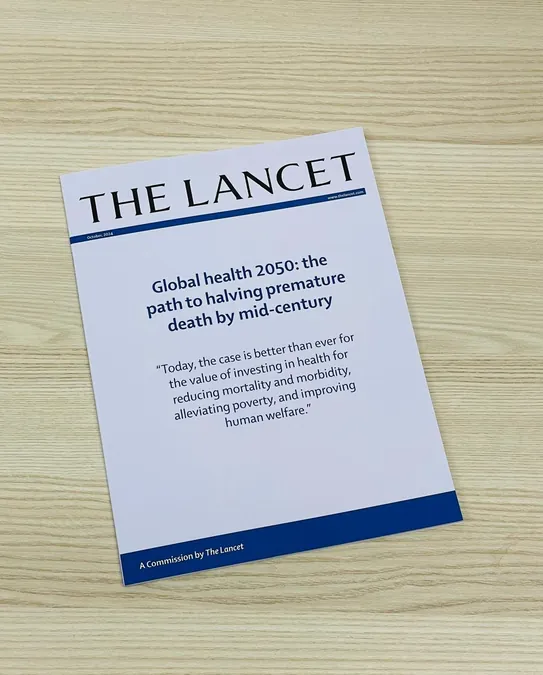
Singapore Shines as Fourth Richest Nation: What It Means for the Future of Global Economies!
2024-10-11
Author: Rajesh
Introduction
In a remarkable showcase of economic prowess, Singapore has been crowned the fourth richest nation in the world for 2024, according to the latest rankings released by Forbes. Touted for its impressive per capita gross domestic product (GDP), this ranking sheds light on the financial strength of smaller nations amid a global backdrop that often favors larger economies.
Global Rankings Overview
Leading the pack are Luxembourg, Macao, and Ireland. Luxembourg retains its supremacy with an astonishing per capita GDP of US$143,740 (roughly S$187,409), making it a beacon of wealth in Europe. Hot on its heels is Macao, known for its vibrant gaming industry and tourism, while Ireland garners third place, bolstered by a booming tech sector and favorable business environment.
Singapore's Economic Strength
Singapore follows closely, boasting a per capita GDP of US$133,740 (around S$174,377). This impressive statistic is not just a number; it reflects Singapore’s robust economy, which is driven by strategic financial policies, advanced infrastructure, and a pro-business regulatory framework. The United States finds itself in ninth place with a per capita GDP of US$85,370 (approx. S$111,309), illustrating the contrasting economic landscapes where smaller countries often outshine their larger counterparts in wealth per person.
Insights from IMF Data
The rankings are based on meticulous data from the International Monetary Fund (IMF), which measures the total value of goods and services produced by a nation divided by its full-time residents. While these figures offer significant insights into national wealth, Forbes also highlights the essential context behind them. Factors like inflation rates and local living costs play a critical role in shaping a nation’s economic reality. This is where purchasing power parity (PPP) comes into play, offering a refined understanding of economic health across borders.
Trends in Global Economy
Interestingly, this ranking reflects a broader trend where smaller nations, particularly those with well-regulated financial sectors and attractive tax regimes, thrive in a globalized economy. Countries such as Luxembourg and Singapore have become magnets for foreign investments, thanks to their stable political climates and business-friendly environments. Meanwhile, larger economies like the United States and China face challenges due to their extensive populations and complex economic structures, which dilute per capita wealth.
Top Ten Richest Countries
The remainder of the top ten richest countries includes Qatar at fifth, the United Arab Emirates in sixth, Switzerland at seventh, San Marino in eighth, and Norway rounding out the list at tenth place, proving that wealth can come in various forms and from diverse regions.
Conclusion
As we look to the future, Singapore's economic model serves as a case study in how strategic planning and international engagement can yield remarkable prosperity. With its thriving finance sector and innovative industries, Singapore is not just surviving; it's setting the stage for a future where smaller nations can lead in global economic rankings! Stay tuned to see how these dynamics evolve and what they mean for global financial trends!




 Brasil (PT)
Brasil (PT)
 Canada (EN)
Canada (EN)
 Chile (ES)
Chile (ES)
 España (ES)
España (ES)
 France (FR)
France (FR)
 Hong Kong (EN)
Hong Kong (EN)
 Italia (IT)
Italia (IT)
 日本 (JA)
日本 (JA)
 Magyarország (HU)
Magyarország (HU)
 Norge (NO)
Norge (NO)
 Polska (PL)
Polska (PL)
 Schweiz (DE)
Schweiz (DE)
 Singapore (EN)
Singapore (EN)
 Sverige (SV)
Sverige (SV)
 Suomi (FI)
Suomi (FI)
 Türkiye (TR)
Türkiye (TR)